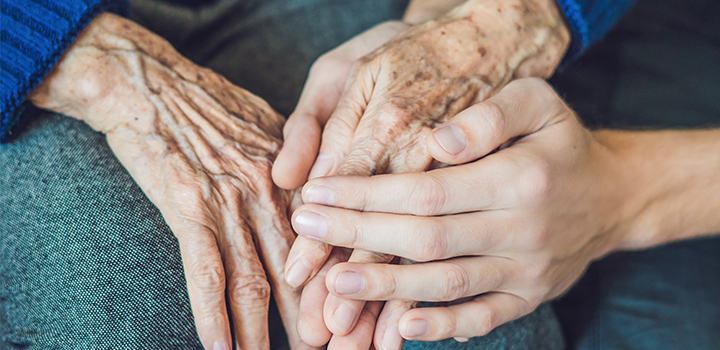Palliative Care explained

There is a misconception that palliative and supportive care applies only to advanced stages of cancer. In fact, this form of care should form a regular part of every cancer patient’s journey – relevant to every stage of the process. Be encouraged to find out more.
Many studies have clearly demonstrated the benefits of palliative care. When palliative care forms part of a treatment plan, cancer patients tend to have less severe symptoms in the case of pain, depression and nausea - and therefore a better quality of life. Also, their management and care seems to be far better aligned with their own personal preferences, values and goals.
Palliative care is a holistic approach to the relief of suffering associated with any stage of a cancer journey. Palliative care brings relief to a person diagnosed with a life-threatening illness such as cancer, and to their loved ones, or care-givers, explains Dr Charmaine Blanchard, a GP with a special interest in palliative care.
Listen to our podcast episode on Pallative Care here to obtain an excellent understanding of this form of care.
Dr Blanchard adds: “It involves a team effort - with you, as patient, at the core - in order to address your physical or medical needs as well as any emotional, social and spiritual needs which result from either your cancer or the treatment. It usually starts upfront with your medical team who will spend time with you discussing your diagnosis and what it means, its impact on both you and your family and most importantly, on your goals and expectations of care - with the focus on your values and what’s most important to you. After an in-depth assessment, an individualised management plan will be put together which may include consulting with other medical professionals such as pain specialists, surgeons, physicians, oncologists, psychiatrists, allied health professionals or social workers as required.”
Aside from alleviating pain and suffering, palliative care will also help you to:
- Live the best possible life, for as long as you can
- Continue being in control of your life and your care, by being involved in all decisions about your care
- Know that your loved ones are being supported too.
When to start palliative care
Palliative care has traditionally been viewed as a treatment of last resort in the final days or weeks of life, continues Dr Blanchard. “At this point, it would be difficult to make a meaningful impact on your or your family’s suffering as the time would be too short. Because it’s so much more than just end-of-life care, and because its focus is on living actively in spite of having a life-threatening illness, it makes sense to start as soon as it becomes apparent that your cancer is not curable.”
There are a number of options for care available to you depending on your preferences and what is most appropriate at the time:
- Going to a Hospice for ongoing palliative care services – it’s not just a place to go ‘to die’
- Staying at home while being supported by your doctor and care from Hospice
- Being admitted to hospital or to a care facility.
Unfortunately, there is a serious lack of qualified palliative care practitioners in South Africa, which means that you need to rely on your medical team for palliative care advice. In order to make any decisions about what will work best for you as a patient, you need to have three important discussions:
- Ask your medical team about the advantages and disadvantages of any further treatments, how they will impact on your quality of life or prolong your life, so that you can decide on what is most important and of value to you, given your goals at this time
- Talk to your family about your preferences for care at the end of life, especially should you not be able to speak for yourself one day, and these need to be documented and discussed with your doctor
- Contact the Hospice Palliative Care Association of South Africa at to find out what they offer. And don’t put this at the end of your to-do list because even if you’re receiving treatment to manage your illness (such as chemotherapy or radiation therapy to slow down the cancer growth or to manage pain or symptoms, or renal dialysis) they will still be of tremendous help.
- Find out more about the Advanced Illness Benefit – a comprehensive palliative care process that is part of Oncology Programme, and which offers unlimited cover for approved care at home.
The Discovery Health Medical Scheme is an independent non-profit entity governed by the Medical Schemes Act, and regulated by the Council for Medical Schemes. It is administered by a separate company, Discovery Health (Pty) Ltd, an authorised financial services provider.
Related articles
It's normal for every cancer patient to think about the possibility of death throughout their cancer journey. Yet, being told that your cancer is no longer treatable thrusts you into a brand new reality, which can be extremely difficult to come to terms with.
Impact on your family and how to deal with this
A diagnosis of terminal or advanced cancer will affect both you and your loved ones. Everyone will react to this differently and it's important not to shut down to ensure that your wishes and needs are well communicated to both your medical team and your family.
Doctors in the field of child palliative care work to surround child cancer-patients and their families with a team of skilled professionals – going well beyond pain alleviation.